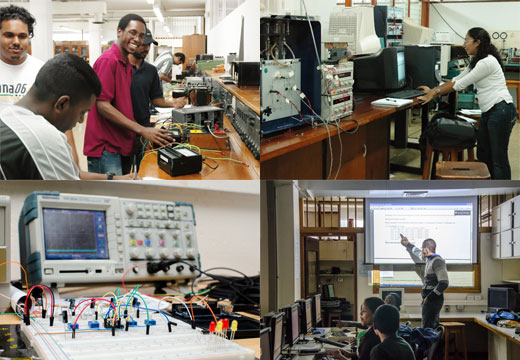As electrical and computer engineering is an applied science practical work is central to the undergraduate curriculum. Examples of laboratory work at Levels 1 and 2 include:
- Using testing equipment and simulation software
- Designing, implementing and testing circuits
- Programming
- Using MATLAB or other software for computer aided numerical analysis
- Implementing circuits for analog modulation
- Controlling a DC motor
- Analyzing and modeling electromechanical systems (induction machines and synchronous machines), transformers and 3 phase systems
- Designing and implementing digital electronics using FPGAs
- Designing, implementing and testing microcontroller based systems
Year 3 elective courses may incorporate additional laboratory components relevant to those courses.
The Department hosts nine laboratories: Microprocessor, Control Systems, Electronics, Energy Systems, Power Simulation, Special Projects, Shared Computer and Year 1.
